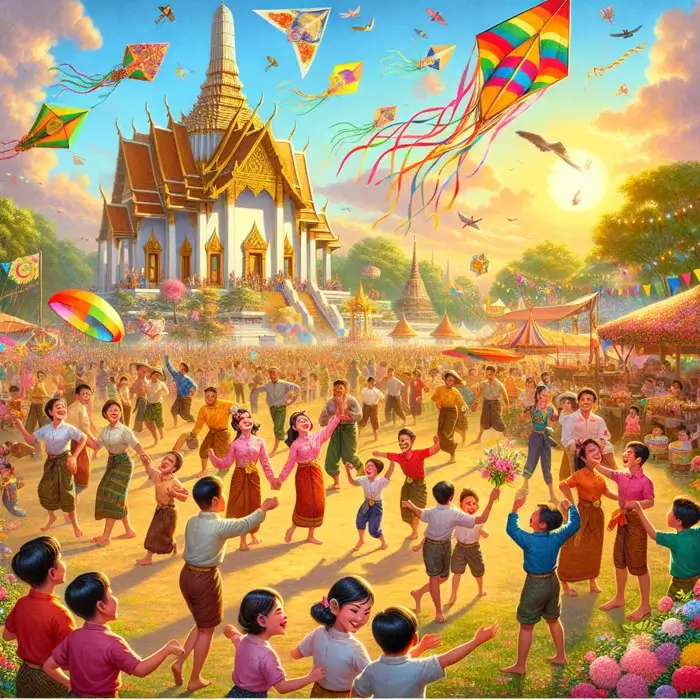National Children's Day in Thailand
Use our holiday API to get the exact date of National Children's Day in Thailand in every year.
National Children's Day in Thailand

National Children's Day or "Wan Dek" as it is called in Thai, is one of the most popular occasions celebrated around Thailand with much laughter and joy. It is perhaps this day that recalls the memory of acknowledging and providing everyone about the next generation - those who are to be responsible for the few coming years - a day to enjoy themselves and learn. Being a nation rich in cultural and traditional values even houses different events and activities through and by which the day can be well-marked for children.
Meaning and Significance
National Children's Day is more than a simple celebration of events. This would be the time for the whole community to appreciate what children do for themselves and for those around them: their rights and needs. A day that reminds parents, caregivers, and all other members of society about their obligation-an important part of their reality as recognized- to develop an environment in which children can grow and thrive.
When is National Children's Day Celebrated?
The National Children's Day in Thailand, celebrated every second Saturday of January each year, has a different date written on it according to that particular year, but the hype and the expression of the waiting time stay thereby.
Events and Activities

Many different activities and events celebrate National Children's Day in Thailand, bringing all types of children to try them. Some of the activities are:
- Open Houses: An open house at government buildings-they include all government offices and facilities, including Parliament and military bases. Such activities would involve children touring these buildings and participating in different educational activities to understand better how the country's governance and defense mechanisms function.
- Exhibitions, events, and competitions: Find schools often organizing such special activities. Children keep busy battling it out in a talent show, an art contest, or even an academic quiz that makes learning fun.
- Entertainment Rides: Most public parks and amusement centers would feature free or discounted rides or entertainment options for kids. Shows on magic, music, dance, and such kinds are often staged to attract thousands of eyes, with the audience being mostly children.
- Community and Commercial Involvement: Such participation could be providing gifts, organizing contests, and hosting events for children. For a fantastic celebration, many places give free admission to museums, zoos, and theme parks.
Institutions' Operational Status
- Schools: Since National Children's Day falls on a Saturday, these institutions close their doors, but some may hold pre-celebratory activities on weekdays before this event.
- Banks and Businesses: Business operations for banks and most businesses remain as usual, with a few opting to join in on the festivities in their locality.
- Museums and Cultural Sites. A few of the museums will remain open, and usually will have some sort of special program available or open free admission, just to encourage children's exposure to culture and history.
History of National Children's Day in Thailand

The origin of Children's Day dates back to 1955 when the observance was adopted in Thailand in continuity with many other countries across the world. The commemoration of Children's Day in Thailand was originally on the first Monday of October. However, in 1963, the date was decided to be changed from the first Monday of October to the second Saturday of January so that there would be an opportunity for the broader participation of the nation, as this caters mostly to families during school vacations.
The day has become increasingly significant over the years, with greater government involvement and increasing public enthusiasm. The Prime Minister would typically address the children of the nation via message on this special day, extending encouragement and support for the current year's theme.
Conclusion
National Children's Day in Thailand is an event that carries great cultural import, as it makes a statement by the country towards its young ones. Such festivities are designed to amuse and educate as well as inspire children through a myriad of activities organized to bring institutions and communities together. Thus, National Children's Day is testament to Thailand's commitment to its future generations.
National Children's Day is all about bringing people together, and it speaks volumes about culture. It's not only about capturing the innocence and liveliness of childhood, but also about highlighting efforts towards empowering the young ones who will be the future caretakers of a nation in the tomorrow that lies ahead.